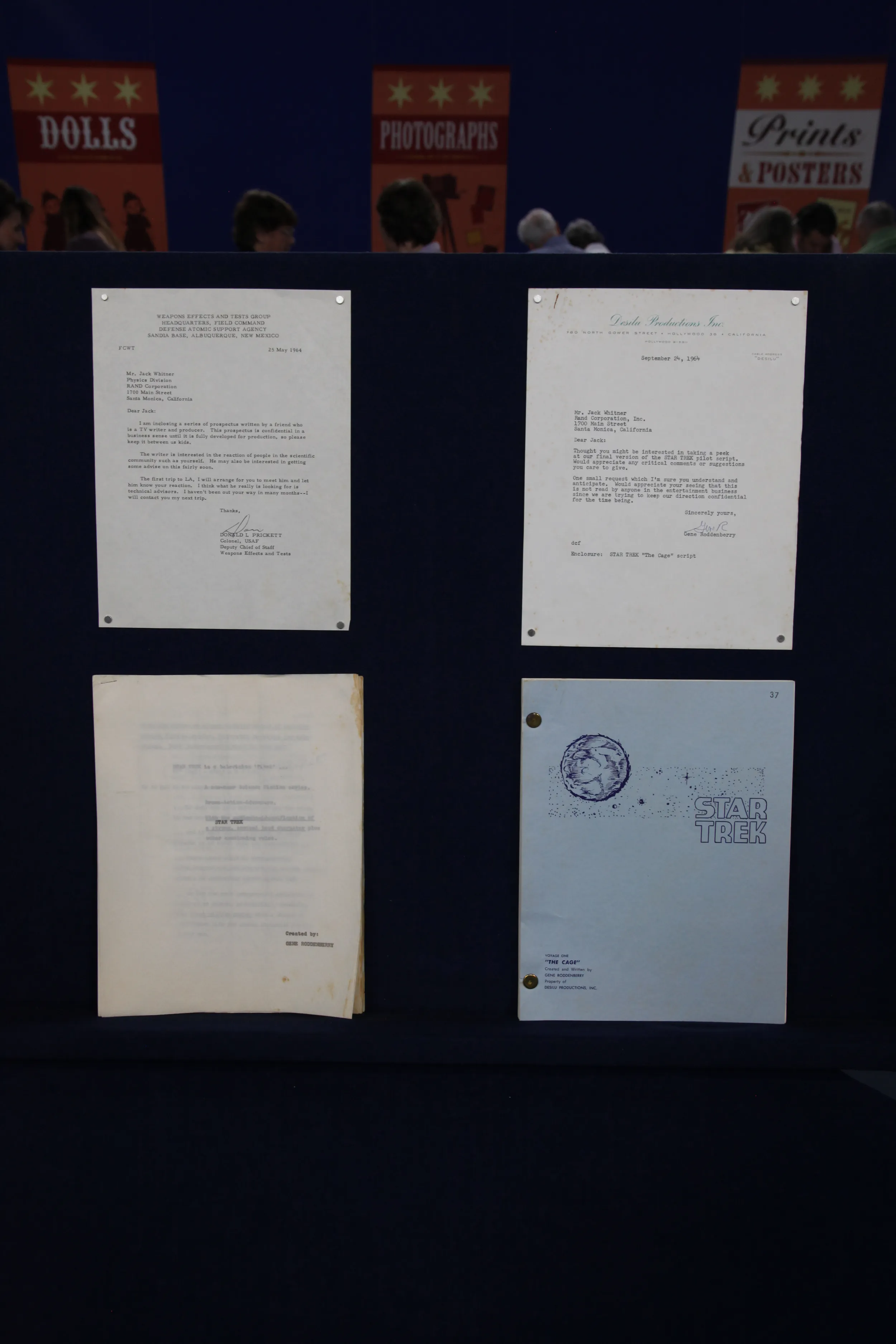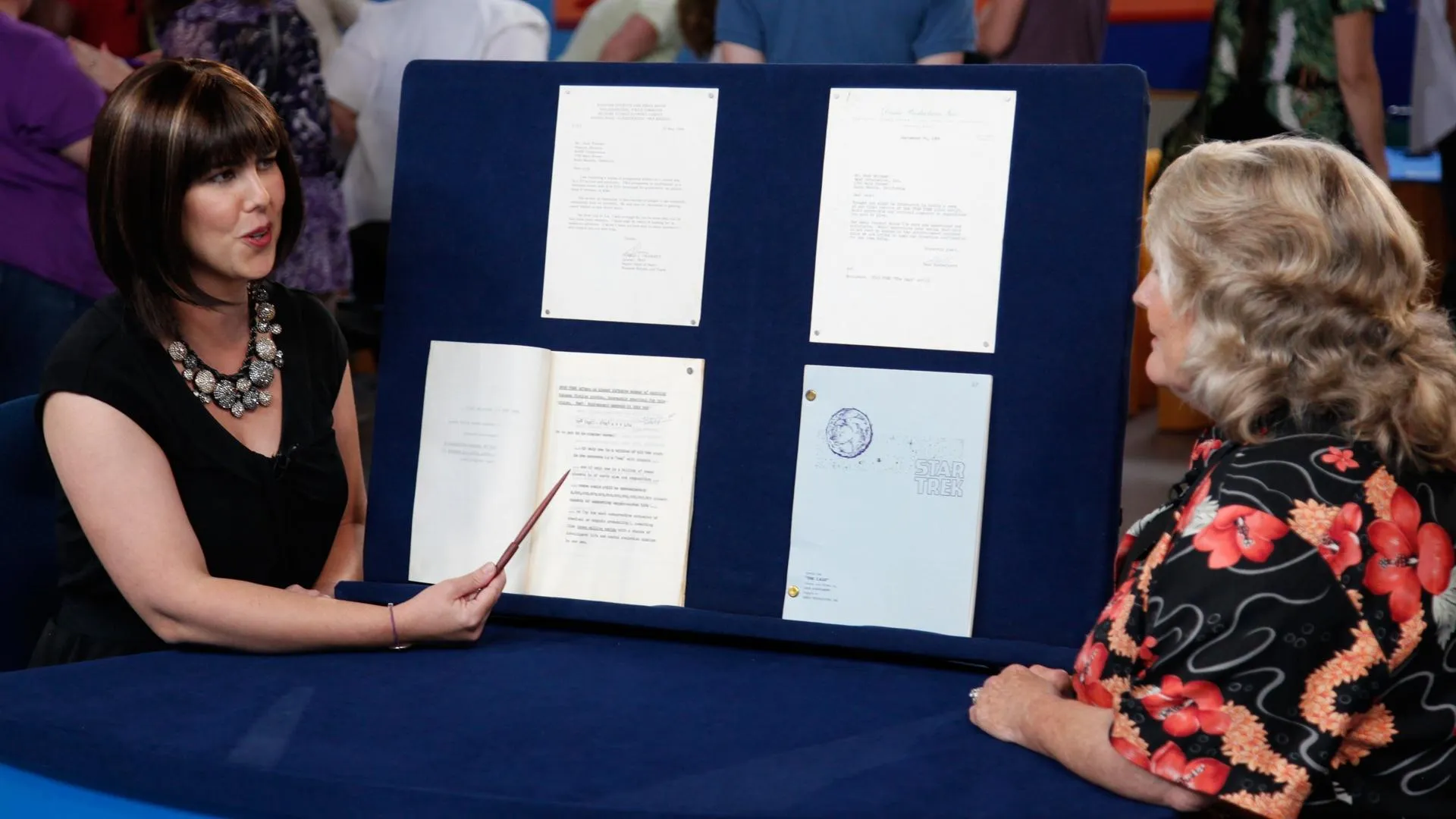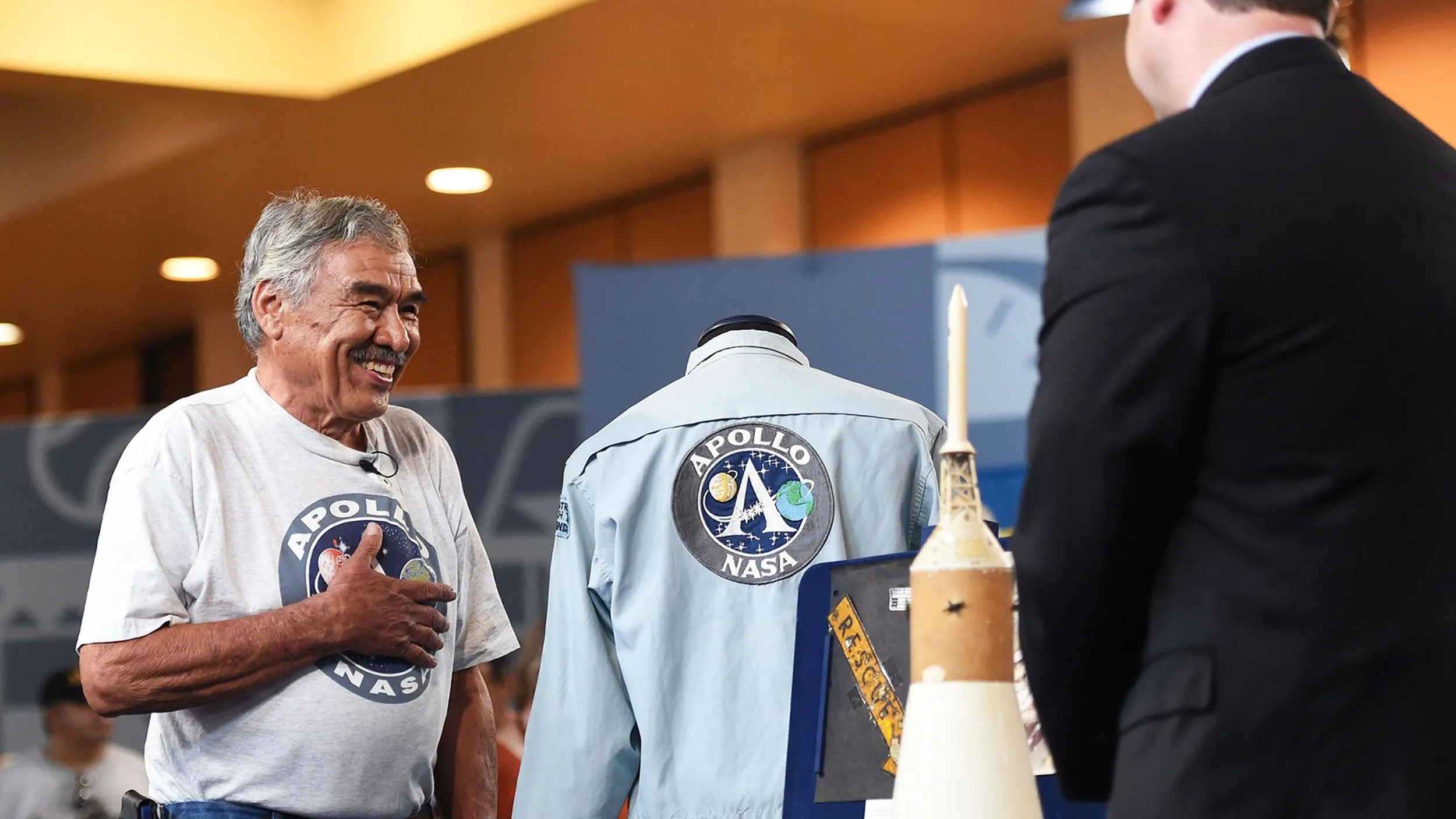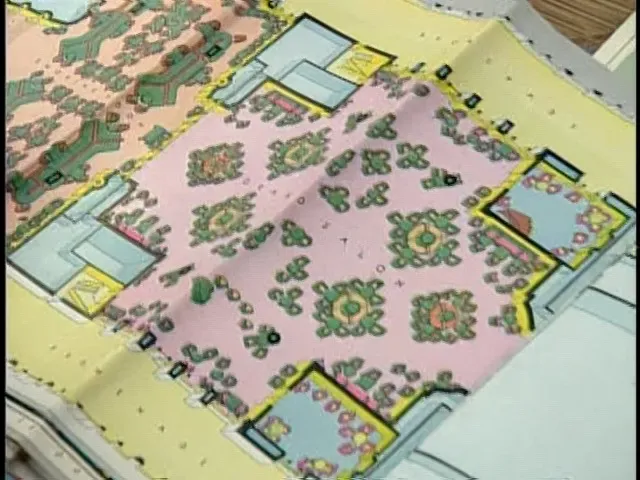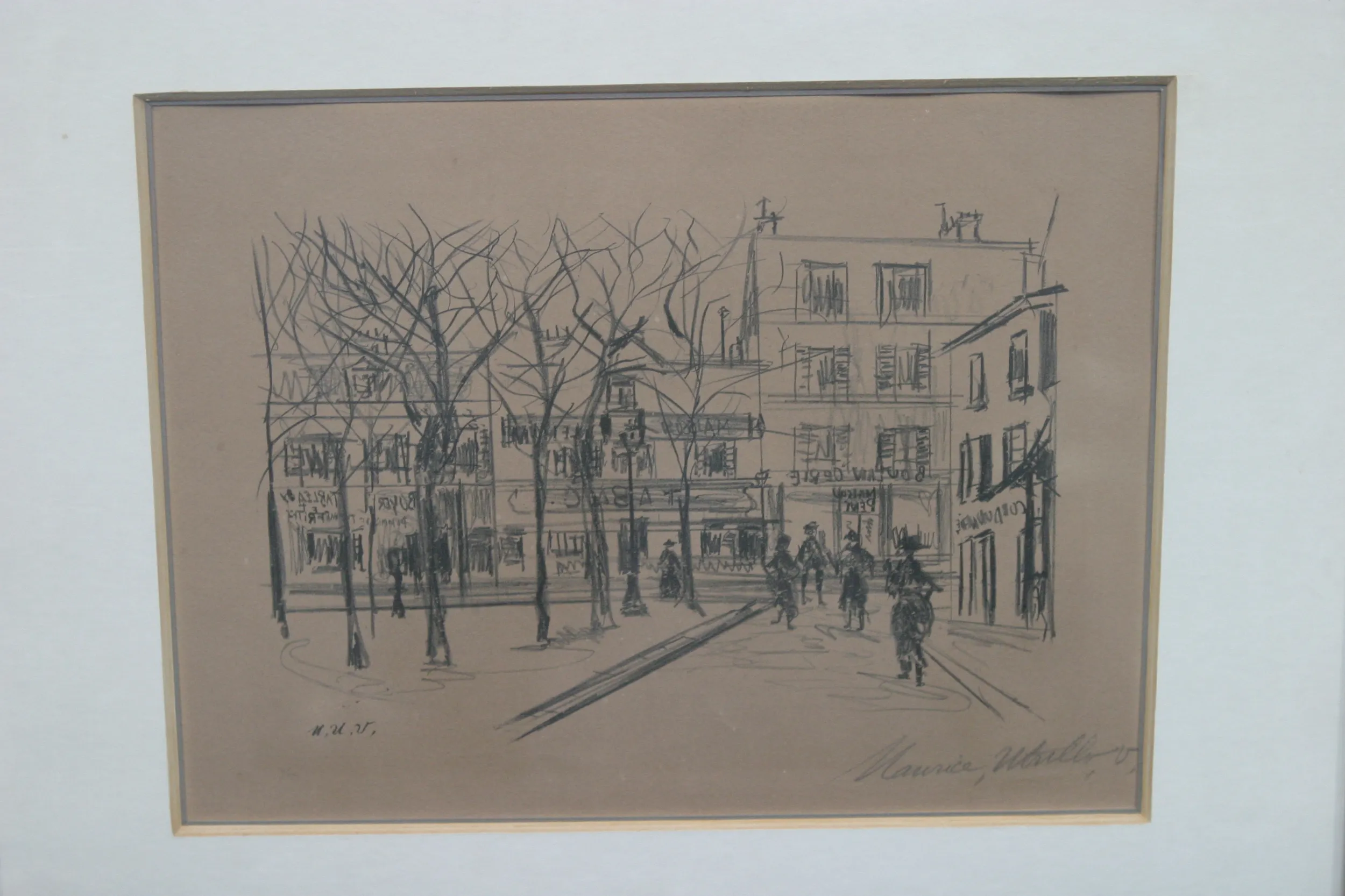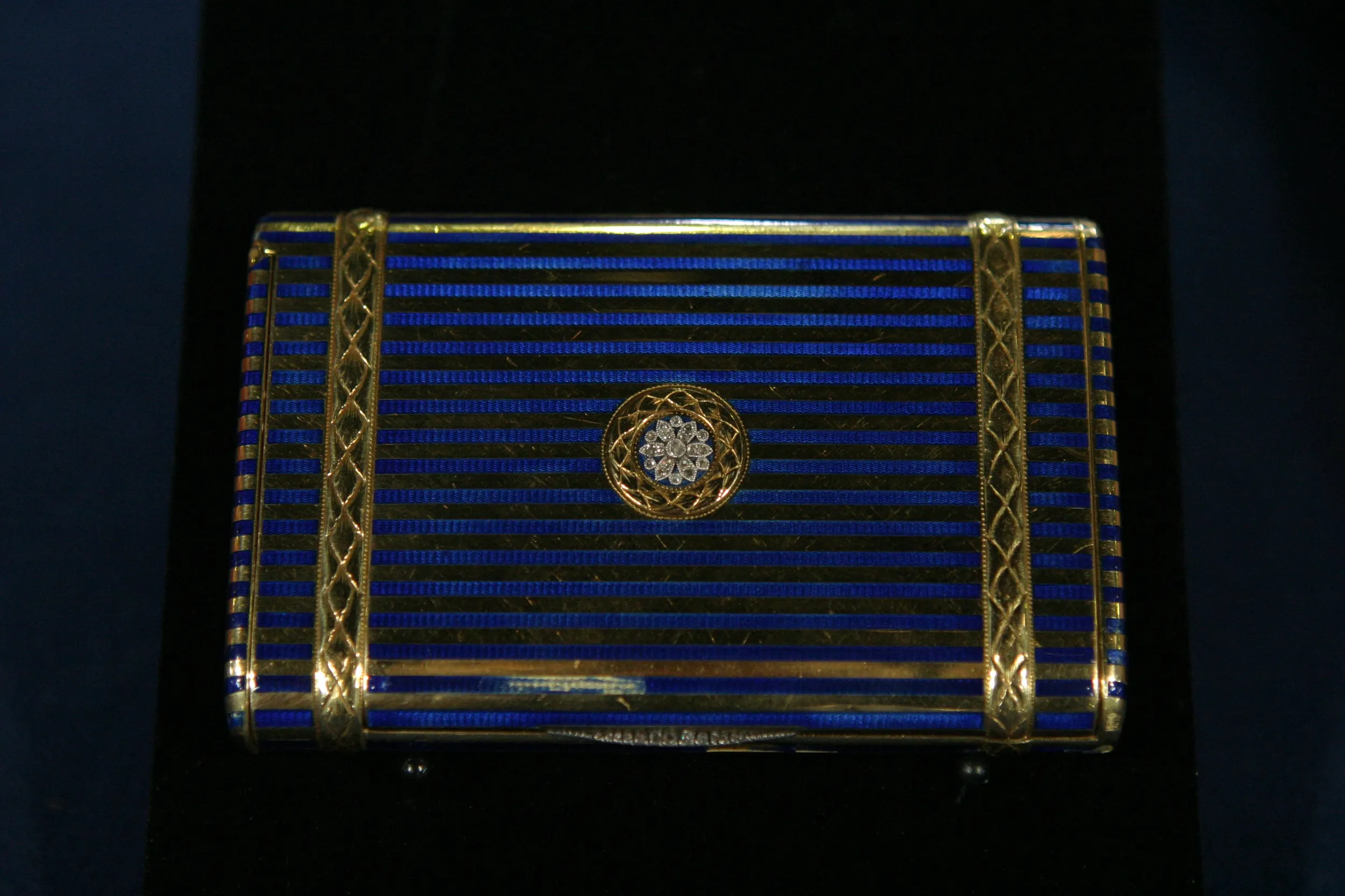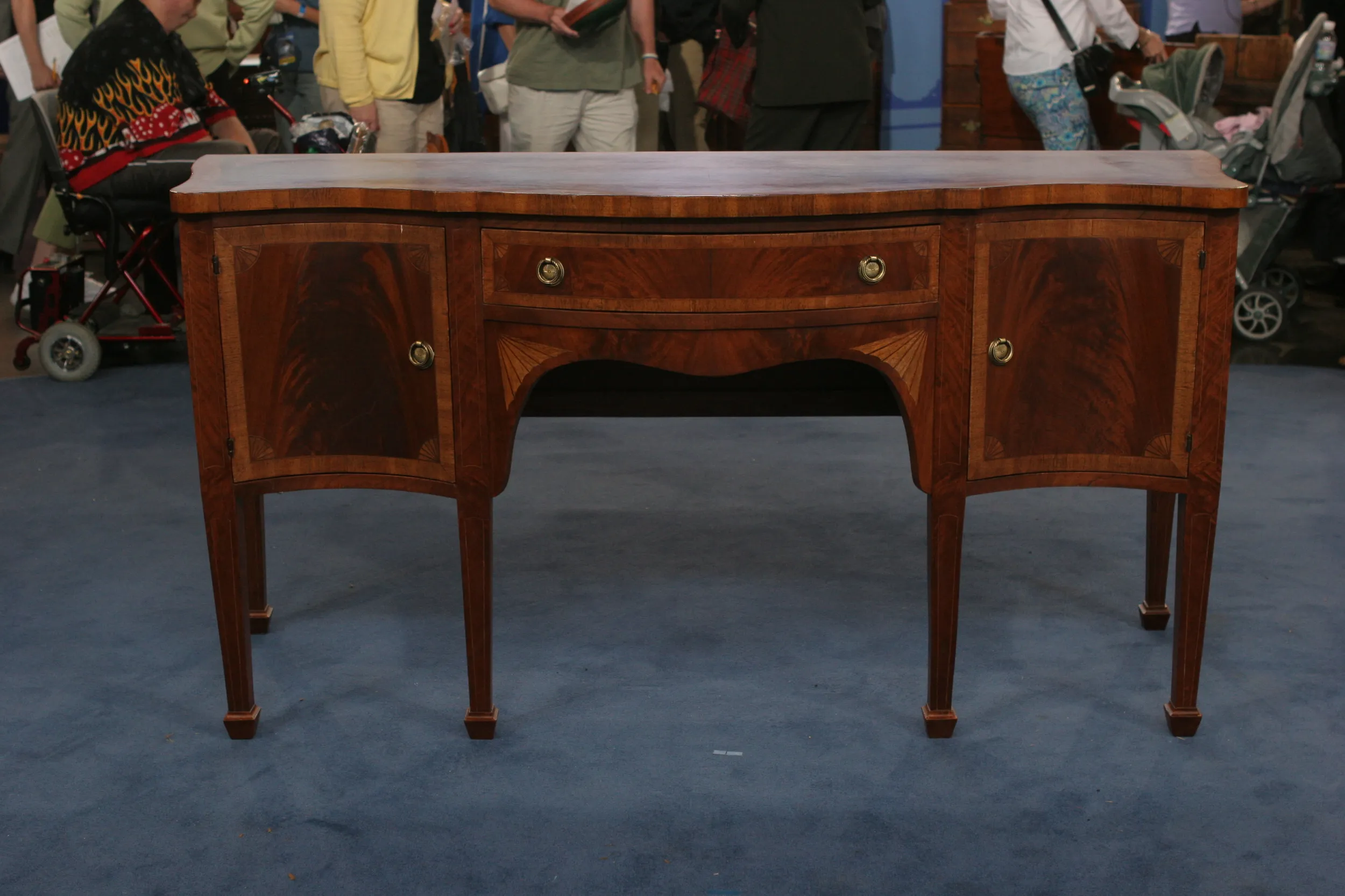GUEST: They're all related to the first series of Star Trek. My father was a nuclear physicist, and a colleague of his who worked in the nuclear program headquarters in New Mexico sent him a letter with the pitch and asked him to take a look at it, and said that he thought that Gene Roddenberry was probably looking for technical advisers. So my father looked at that, and, and he met Gene Roddenberry. And then later that year, Gene Roddenberry sent him a letter with the original script for the first show.
APPRAISER: And that, that letter is up here.
GUEST: That letter's here.
APPRAISER: Okay.
GUEST: And then the script for the first show here, and most people with Star Trek know that that was never aired the way it was. Captain Kirk's original name was Captain April, which... wouldn't have made it, I don't think.
APPRAISER: Well, that's one of many things that changed. If we look at the date, this letter was written in May of 1964.
GUEST: Right.
APPRAISER: And the date on this piece, it originated in March of 1964.
GUEST: Mm-hmm.
APPRAISER: So this is the original typed-up pitch that Roddenberry gave to Desilu Productions. And it's full of all of these wonderful pieces of hyperbole that Star Trek fans through the years have latched onto.
GUEST: (laughs)
APPRAISER: The main one is, he describes it in the opening sentences of his pitch. This is his description of what the show's going to be like to try and get funding. His tag line is, "It's the wagon train to the stars."
GUEST: Right.
APPRAISER: Which all the Star Trek fans really got, and now go back and laugh about. The fans know about this. A copy of it exists. You can actually go online, if someone's interested in reading this, and find some of the blogs. But the best part about that is that the known copy is actually Gene Roddenberry's copy. Can't find one that's ever sold. I even called some other colleagues who are also Star Trek fanatics who work in this world, and none of us have ever heard of one coming up for auction. This is hard proof that Roddenberry really did want the science to be right.
GUEST: Mm-hmm.
APPRAISER: He was reaching out to people like your father, who was a rocket scientist, really.
GUEST: Mm-hmm.
APPRAISER: And it's even funny, he used in his pitch the Drake Equation, which was the equation for a Dr. Frank Drake, which was an equation to come up with how many intelligent life forms might be in the universe, based on planets. He didn't actually know the equation at the time, so I love the fact that your father, being a scientist-- we have notes here, "Temporary. Get correct formula."
GUEST: Mm-hmm.
APPRAISER: Posters have been made of this. They call this the second variation.
GUEST: Oh.
APPRAISER: In Star Trek world.
GUEST: Is that right?
APPRAISER: The real one is the first variation, and Rodenberry's made-up Drake Formula is the second variation.
GIEST: Oh.
APPRAISER: And did your father actually ever consult for the show?
GUEST: No. Number one, he was sort of a real stickler for science, and he knew that he would be too picky, and he wouldn't let some things go by. And, secondly, he really didn't think it would go anywhere.
APPRAISER: But he saved it.
GUEST: Yeah, he saved it.
APPRAISER: Moving on from that, then, we have the letters. Now, this is getting a little bit later, September of '64. The show didn't actually really air until '66, so we're two years before air, which is great. It ran for three years and was canceled. And it wasn't until the fans in the '70s put together these conventions, and rallied...
GUEST: Mm-hmm.
APPRAISER: And really pushed the networks to bring it back, that they even started looking at the series again and realized what a cult phenomenon they had on their hands. There's so much about it that's rich in television history that I love here. But moving into the value, at auction, we would estimate at least $4,000 to $6,000 on the document.
GUEST: Really?
APPRAISER: But not having another one to compare it to and not knowing how many are out there...
GUEST: Uh-huh.
APPRAISER: It could go for $10,000 to $15,000 on the day.
GUEST: Oh, my stars.
APPRAISER: This is a bit more common. There were more copies of the original script.
GUEST: Uh-huh.
APPRAISER: Those generally sell in the $200 to $300 range.
GUEST: Uh-huh.
APPRAISER: A Gene Roddenberry letter might sell in the $100 to $150 range, but altogether as a package, it's worth far more than those little pieces split up.

